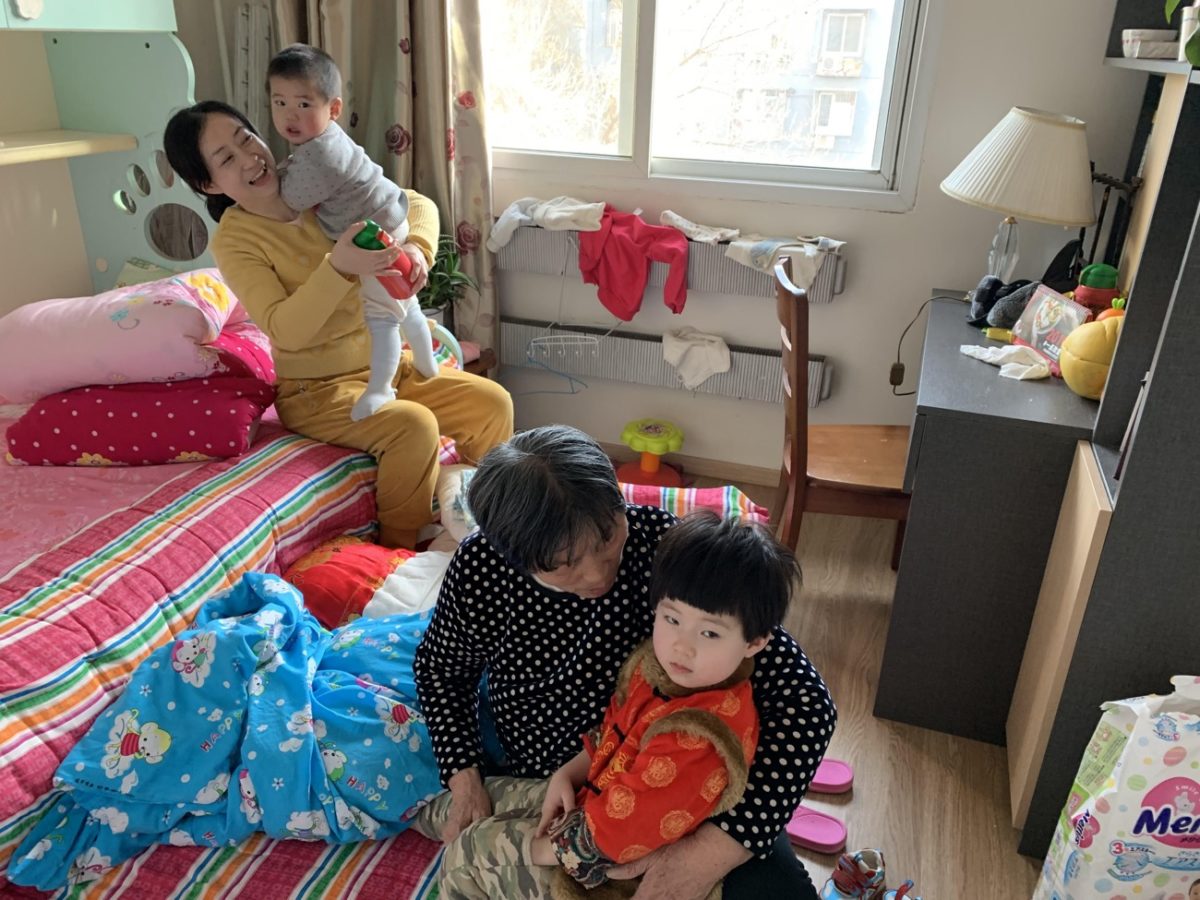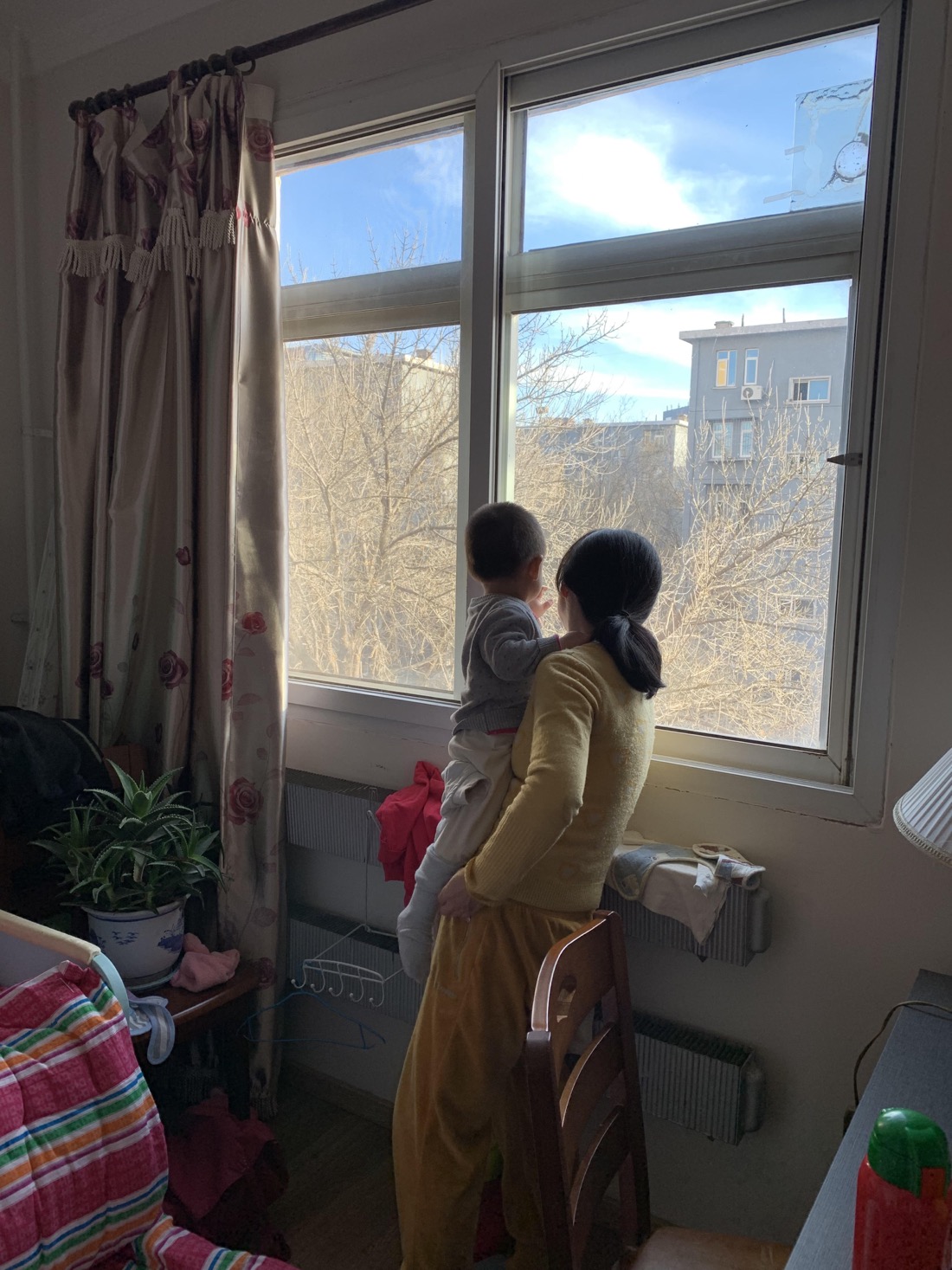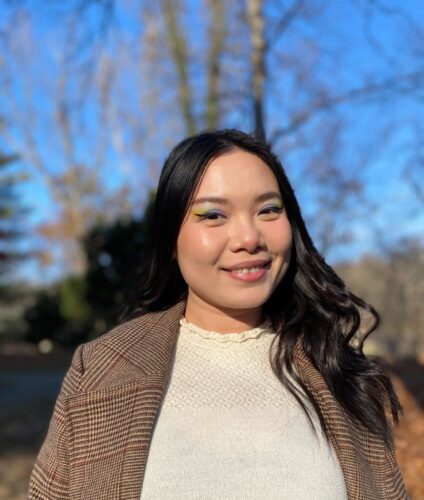‘To be a Chinese mother, you need a strong heart’: A conversation with a young mother in China

China may have abolished its one-child policy, but motherhood remains fraught with obstacles.

On a blustery Beijing winter afternoon, I paid a visit to the new home of Iris Hu, one of my oldest friends. She had just moved into a new apartment, finally freed from the cramped 70-square-meter two-bedroom she once shared with in-laws along with her husband and two toddlers (her in-laws will remain there). Her daughter is three and her son is one. I gave them their English names, Jolene and Julian. They are both her source of joy and consternation, a topic we have discussed often.
Iris is from a small town in Hebei, and like so many young people from lower-tier cities, moved to Beijing to seek her fortunes. We became friends when she worked as a receptionist while completing her bachelor’s degree at night school. She met her husband, John Tian, through friends, and married with a simple ceremony in the countryside.
For the first few years of marriage, Iris and her husband, like many young couples in first-tier cities, were in no hurry to start a family. Instead, they lived the DINK (double income, no kids) lifestyle. Both of them clocked long hours at work and spent weekends unwinding with long hikes, parties with friends, and watching movies. During her free time, Iris worked on her badminton game at the court while her husband John practiced calligraphy and carved intricate traditional designs into tiny dry gourds. They were not even entirely sure if they really wanted children.
As Iris got older, the couple’s parents applied more pressure on them to perform their filial piety duty and produce a grandchild. Iris miscarried several times, and was ordered months of bedrest by her doctor to protect her pregnancy. She was reluctant to take off work during her entire pregnancy just to wait for the baby to arrive. Her family considered it unthinkable for her to go to work and risk another miscarriage, even though it has been proven that during the second and third trimester the chance for miscarriage drops considerably.
After her daughter Jolene was born, Iris was hit with severe postpartum depression, something taboo and little understood by most people in China. For many weeks she was wracked with insomnia and dark thoughts. What frightened her most was the numb apathy she felt for her new daughter, a yawning void where powerful maternal love was meant to be. To make matters worse, her in-laws moved in to help with the baby, and continuously slighted her for struggling with her illness, calling her a bad mother and a broken woman.
“Chinese mothers are great in our ability to endure any hardship, overcome any obstacle on our own. We can’t rely on the men.”
When Jolene was two years old, Iris found herself unexpectedly pregnant again. Both her parents and her in-laws immediately formed a united front to push her to have the baby — China’s one-child policy had just officially ended, and the grandparents were eager for the possibility of a boy. Iris was reluctant, her psychiatrist told her she would likely experience postpartum depression again, and she didn’t feel she and John had the financial means to support two children. Nevertheless, she gave into parental pressure, and in 2018 welcomed Julian, her son.
Recently, figures released by the Chinese government showed the birth rate is the lowest since 1961, and pressure is mounting for Chinese women to have more children. Beyond policies, the economy, and other macro-led conversations, I wanted to hear from a Chinese woman herself. Iris and I sat down together last Sunday in her airy new living room furnished with IKEA furniture to talk about being a mother and a woman in China today.
Frankie: How are you doing? What’s new?
Iris: I finally live apart from my monsters-in-laws!
Congratulations!
They come from a different era, we don’t see eye to eye on anything. It was hard to rely on them to take care of my kids when I don’t like the way they do it. Jolene already has a lot of bad habits from being with her grandmother, and she’s been very insecure and prone to tantrums since Julian was born…my in-laws don’t even try to hide their favoritism for boys.
That’s awful, are there ways to mitigate this?
We sent Jolene to private daycare for a while, there’s a Red, Yellow, Blue daycare center near our old place.
Isn’t that…
Yeah I know, that’s the one with the child abuse scandal last year. To be a mother in China, you need a strong heart. You can’t be too afraid all the time.
That daycare was close and the tuition was lower than its competitors, still 5,000 yuan ($750) per month though, and I only make 10,000 per month. I’m worried about getting her into preschool, the public preschools available have so few openings, I don’t even know who to bribe to get her a spot.
Is bribery just standard practice?
Yes, everyone does it because the public preschool is much more affordable than private ones, I heard one name-brand private preschool’s tuition is 88,000 ($13,000) per month!
Did you consider staying home to take care of the kids yourself?
[laughs] That’s too difficult for us. We have two kids now, that’s double everything. We bought this apartment using borrowed money from friends, our parents have no retirement income, my husband doesn’t make enough to pay for everything.
So it’s mostly about the money?
No, even if John made enough, I’d maybe only stay home for a couple of years and then go back to work. Being a stay-at-home mom doesn’t suit me. I need my own social circle, and responsibilities beyond taking care of people at home. If I stayed home, I’d be isolated from society and lose touch with reality. I’ll become stupid.
Having a job also gives me a sense of purpose and belonging. I pull my weight for the family, I have a right to be heard.
The other day Jolene asked me, “Mama, what’s your job? Do you like it?” and I told her about being an executive assistant, and she said, “I want a job too!”
Aww, you’re her role model.
It’s a lot of work. I don’t know what it’s like abroad, but in China, “widow-style childcare” is very common.
That sounds grim.
Basically, after the baby is born, the dad will disappear. He’ll continue to work as much as he did before, go out with his drinking buddies, have fun when he wants to, and taking care of the baby is entirely up to his wife. John is not that bad, and my friends often tell me how envious they are that my husband makes an effort, but I tell you, he doesn’t do that much.
What is it like for the two of you?
John sleeps with our boy at night, and when I’m too tired he will change the diapers. He…helps out.
I’m not very convinced here.
Chinese mothers are great in our ability to endure any hardship, overcome any obstacle on our own. We can’t rely on the men. There are a lot of things the men just can’t do well, or just don’t know. The dads have very low standards and no patience for taking care of children, since most of them never had to do any chores growing up. You often hear men complain about how strict their wives are about everything, they just don’t care.
Did you know all this before getting married and having kids?
No, and maybe I ignored it. I imagined that everything would be wonderful…like in the movies [laughs].

Do you remember what you hoped marriage and motherhood would be like before?
I wanted to be a wise and gentle wife and mother, as the idiom goes (贤妻良母 xián qī liáng mǔ). I wanted to be able to perform all my duties well and still look great (上得厅堂,下得厨房 shàng dé tīngtáng, xià dé chúfáng). I never knew everything would be exhausting, and I would only have the energy to perform my duties and have no energy left to look beautiful.
I really miss my life before having my kids, John and I had a lot of fun together. Now our marriage is basically on hold while we pour all of our energy into the children.
Hopefully, when the kids get older we can think about going hiking again. Maybe a short trip somewhere beautiful. I can’t wait for them to grow up.
Do you ever think about Jolene’s future? What kind of woman do you want her to be?
I want her to have a better life than me.
In what ways?
I want her to be able to choose for herself. Like, I didn’t have a choice in having Julian. Two years ago I had already booked my appointment at the hospital for an abortion when my parents and in-laws got wind of it, and forced me to cancel it. I had no choice in the matter.
I want Jolene to be able to decide what she wants to do with her life.
And with her body.
Yes, definitely.






